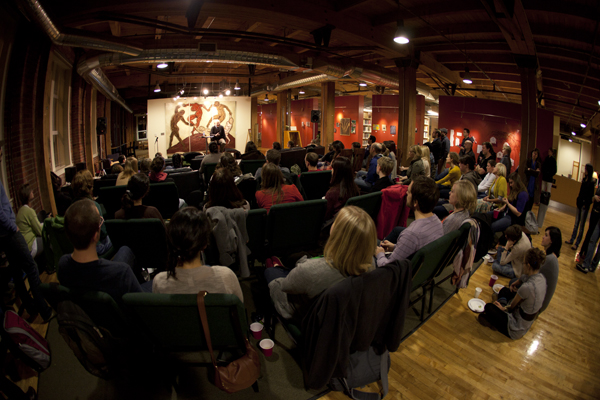Students, staff, and faculty of The Seattle School of Theology & Psychology gathered for the annual State of the School event last Monday, February 2. Dr. Keith Anderson, President of The Seattle School, addressed the community with a recap of the past year and an update on upcoming changes.
“It’s a chapter of growth—not much rust or moss growing anywhere,” said Anderson. That growth includes enrollment in the graduate school and certificate programs, as well as infrastructure improvements and faculty development. The Seattle School is in the process of selecting a new theology professor (read more on that here), and recent grants will allow for further development of faculty, executive structures, and alumni support systems (more information on those grants is coming soon).
“Good organizational health is evident and verifiable,” said Anderson. This steady growth makes The Seattle School unique in the current field of theological education. “We are one of only 22 percent of seminaries in North America who are growing”—a statistic that Anderson finds sobering even in the midst of celebrating growth.
2014 was “the year of actualization” for The Seattle School, said Anderson. Projects that had been in development for multiple years were brought to fruition, and major attention was given to improving infrastructure in the areas of admissions, academics, administration, trustees, students, and alumni.
Moving forward, Anderson said that 2015 will be a year of alignment. Whether in the thorough assessment of core curriculum, the thoughtful, deliberate pursuit of further accreditation, or the hiring of new professors, the staff and faculty of The Seattle School are committed to creatively adapting to the changing field of graduate education without forgetting the core vision and principles. The areas of strategy, budget, operations, personnel, and curriculum are all being reviewed and developed in light of The Seattle School’s founding mission: training people to be competent in the study of text, soul, and culture in order to serve God and neighbor through transforming relationships. “We listen to our mission statement to lead us,” said Anderson. “It is a living document that continues to be breathtaking to me, and we continue to exegete what it means.”

